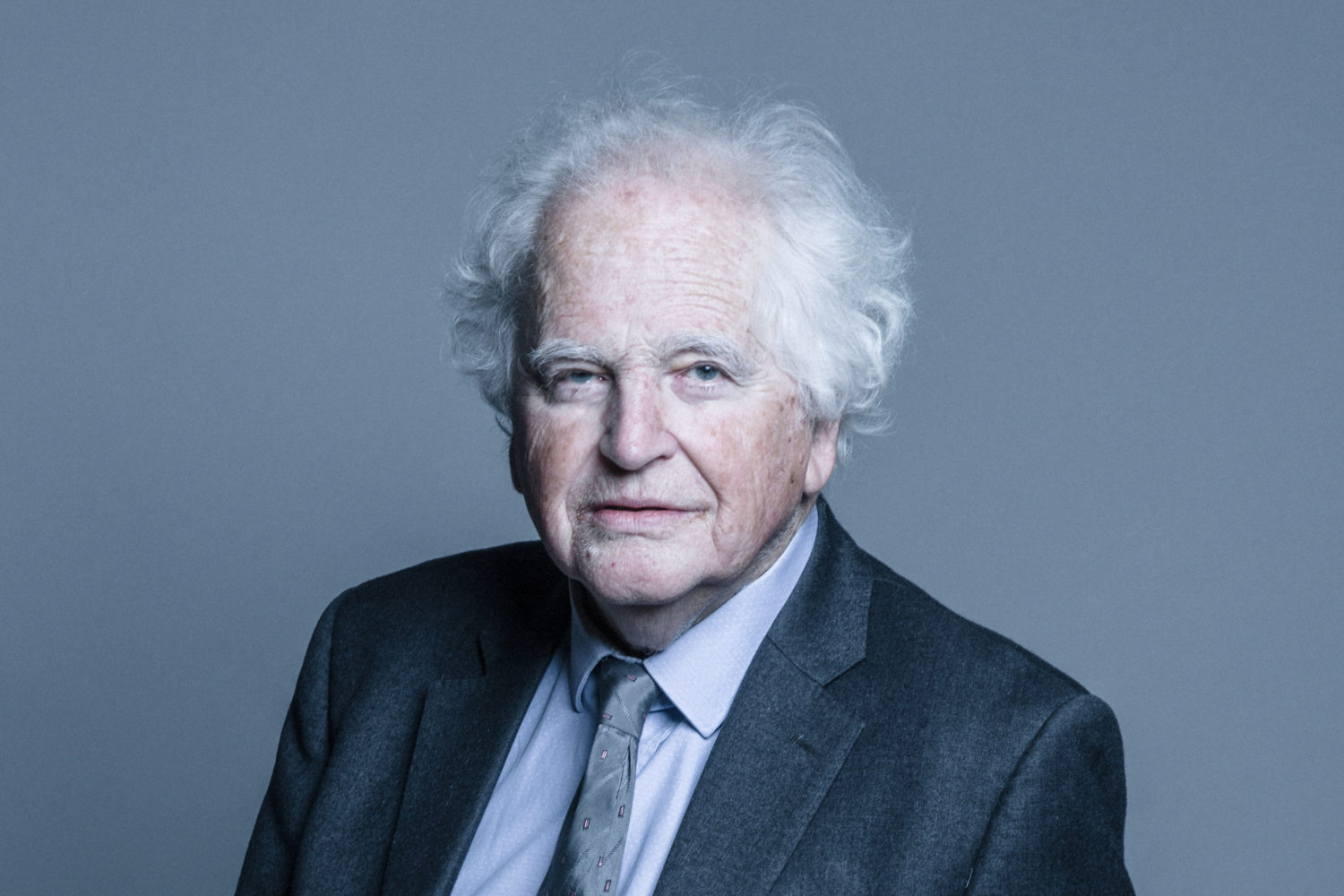A powerful legacy
Giles Radice was one of the leading social democrats of his generation: as an MP, peer, author and Fabian. Patrick Diamond reflects on his life
Lord Giles Radice, who died on Friday, was an outstanding political figure and among the leading social democrats of his generation. A committed Fabian (and chair of the society in 1976/77), Radice’s driving belief was that Labour had to be a party of power rather than a protest movement. Right up until his death, he was thinking through how Labour could construct a viable progressive majority that would marginalise the Conservative party and recast Labour as the natural party of government in British politics. Giles was my friend, colleague and intellectual collaborator. This article is an initial reflection on his intellectual and political legacy for the British centre left.
Radice had a unique perspective as a lifelong social democrat in the Labour party who spanned both the Crosland revisionists of the 1950s and 1960s and the sustained effort to modernise the party in the 1990s under Tony Blair and Gordon Brown. He was a strong supporter of the quest to update the party’s aims and values while overhauling its organisational structures following the devastating 1992 general election defeat. YetRadice was always uncomfortable with the positioning of Old versus New Labour which became such a defining hallmark of Blair’s determination to reshape the party after winning the leadership in 1994. Radice’s appreciation of history was deep. He argued that the radical pragmatism of New Labour was nothing particularly new, but merely a recasting of moderate Labour politics with roots stretching back to the post-war Labour governments succeeded by the revisionist generation of Gaitskell and Crosland. It had been Hugh Gaitskell’s crusading zeal and doctrine of humanistic social democracy that above all else brought Radice into politics. The revisionist tradition in the party argued that socialism was an ethical endeavour that involved applying timeless values of equality and social justice to the economic and social policy problems of each era. Radice’s approach outlined in tracts such as Labour’s Path to Power: The New Revisionism (Palgrave MacMillan 1989) afforded Blair’s generation of modernisers an intellectual framework within which to develop their agenda for a new Britain.
Radice’s seminal contribution to Labour politics and strategy was the series of Fabian Society pamphlets, starting withSouthern Discomfort, published in the early 1990s which drew on qualitative research undertaken by Deborah Mattinson, now Keir Starmer’s director of strategy. Although he represented a parliamentary constituency in the north east of England, Radice was acutely aware that to secure a parliamentary majority, Labour had to win a swathe of marginal seats in the Midlands and southern England by appealing to a new breed of affluent voter. This southern electorate had a markedly different perception of the Thatcherite legacy, having apparently benefited from policies of home ownership (the so called right to buy), lower income taxes, and wider share ownership following privatisation. Radice argued that Labour had to address these voters on their own terms rather than lecturing them on the evils of free market capitalism. Too often, they saw Labour as a class-based party rooted in the past with too little to offer aspirational families. They were willing to vote for better public services and a revitalised welfare state, even to pay higher taxes, as long as Labour demonstrated that their money would be wisely spent and hard work rewarded. The Southern Discomfort analysis was subsequently criticised for appearing to justify Labour’s abandonment of its traditional working-class supporters. However, that was never Radice’s recommendation. He believed that in order to help constituencies such as his own that had borne the brunt of rapid deindustrialisation and political neglect in the 1980s, Labour had to be in a position to construct a broad-based electoral majority – winning seats such as Harlow and Hastings, not just Heywood and Hartlepool. The argument was typical of his political approach, combining social democratic principle with political realism, facing up to the world as it is, not as we imagine it to be.
After Labour lost the general election in 2010, Radice and I revisited the research on Southern Discomfort. We argued that only by listening carefully to the electorate would Labour be able to find a path back to power. Until it genuinely heard what voters were saying, the party would never reassemble an election-winning coalition. Too many voters across the UK were now confused about what Labour stood for, and no longer believed that it was the party of fairness. If it was to win again, the party had to focus in particular on how to regain its reputation for economic competence.
Radice’s immense intellectual contribution to Labour politics over the last 50 years was enhanced by two fundamental features of his outlook: his talents as a historian of Labour politics elaborated in outstanding works such as Friends and Rivals: Crosland, Jenkins and Healey (Octagon Press 2003) and The Tortoise and the Hares: Attlee, Cripps, Dalton, Morrison (Politicos Publishing 2008); and Radice’s status as among the most committed pro-Europeans in the Labour movement. As such Radice (taught at Oxford by the famous English historian, AJP Taylor) brought a sense of historical perspective to contemporary debates about Labour politics, just as he challenged the insularity of the British left, urging the party to draw on lessons from its sister parties in Europe. Radice was particularly close to the Swedish Social Democrats and the SPD in Germany, both of which modernised their ideological approach in the early 1960s. His views on the European question were always carefully balanced and nuanced. He was a passionate pro-European, a position he elaborated in a personal memoir, A Love Affair With Europe (Haus Publishing 2018). But he acknowledged that since joining the European Community in 1973, the British had remained reluctant Europeans. Many voters did not believe that Europe conferred much direct political or economic benefit. Radice thought that for several generations the British governing class, including Tony Blair, had failed to make a convincing case for EU membership to UK voters. He was dismayed by the half-hearted and ineffectual campaign for Remain by the major parties in the 2016 referendum (and particularly incredulous at Jeremy Corbyn awarding the EU ‘seven out of 10’ while ostensibly urging Labour supporters to back staying in). Yet Radice did not think that the referendum result could easily be reversed. He strongly believed that the verdict of voters had to be respected. He acknowledged that the fundamental question of Britain’s long-term relationship with Europe remained unresolved by Boris Johnson’s botched withdrawal agreement. Nor did he conclude that there was any realistic prospect of pursuing ‘social democracy in one country’.
As such, Giles Radice was undoubtedly the British social democrat par excellence. I worked with him closely for 15 years, firstly in his capacity as chair of the international think tank, Policy Network (a role he fulfilled with great diplomacy, political skill and unrivalled enthusiasm), and latterly as co-author of a series of publications on social democracy, Labour politics and the British left. He was a lucid thinker and a gifted author who wrote in a perceptive and illuminating style (often immeasurably enriched by the editorial input of his wife, Lisanne, herself a brilliant writer and literary agent who co-wrote a number of earlier volumes with her husband, including a biography of the British trade union leader and Labour MP, Will Thorne).
Reflecting on Radice’s life and sustained contribution to Labour politics, I can only say that I feel immensely privileged to have known him. He was among my best friends in politics, not because we necessarily agreed on every burning question facing the Labour party, but because of his deep sense of loyalty and personal commitment. He was an outstanding example of how to lead a political life while retaining both our humanity and intellectual principles. He never lost his zest and passion for new ideas, admonishing me on several occasions during our most recent writing project for not paying sufficient attention to the issues of environmental sustainability and climate change. He thought deeply about emerging debates concerning racial justice and the growth of movements such as Black Lives Matter. Many friends and colleagues in Parliament and throughout the Labour movement have already testified to Giles’ wisdom and kindness in the moving tributes that have been paid since his death. We mourn his loss but we celebrate a life lived with the highest honour and integrity which bequeathes a lasting political and intellectual legacy to the British left.
Photo: Chris McAndrew/UK parliamentary portraits

